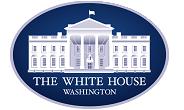Government/Policy

May 19, 2021
Steel Lobbying Groups, USW Urge Biden to Keep Section 232
Written by Michael Cowden
A coalition of U.S. steel industry lobbying groups and the United Steelworkers (USW) union want the Biden administration to keep Trump-era Section 232 tariffs and quotas on imported steel in place.
The groups say the tariffs – rolled out in March 2018 on national security grounds – are necessary for the survival of the domestic steel industry.
![]() “Eliminating the steel tariffs now would undermine the viability of our industry,” they said in a letter addressed to the White House and dated Wednesday, May 19. “Global steel overcapacity has only increased during the pandemic, and past economic crises have led to devastating import surges as other nations dumped their excess steel into the U.S. market.”
“Eliminating the steel tariffs now would undermine the viability of our industry,” they said in a letter addressed to the White House and dated Wednesday, May 19. “Global steel overcapacity has only increased during the pandemic, and past economic crises have led to devastating import surges as other nations dumped their excess steel into the U.S. market.”
The letter urging President Biden to keep Section 232 in place comes after U.S. and European trade officials announced a trade truce earlier this week that could result in the eventual easing or lifting of tariffs against steel and aluminum from the EU – a traditional U.S. ally.
The letter was signed by Kevin Dempsey, president and CEO of the American Iron and Steel Institute (AISI); Thomas Conway, international president of the USW; and Philip Bell, president of the Steel Manufacturers Association (SMA). Other signatories were Roger Schagrin, executive director and general counsel for the Committee on Pipe and Tube Imports (CPTI); Laurence Lasoff, counsel for the Specialty Steel Industry of North America (SSINA); Charles Carter, president of the American Institute for Steel Construction (AISC); and Scott Paul, president of the Alliance for American Manufacturing (AAM).
The groups noted that U.S steel output is up approximately 50% year-over-year.
U.S. mills produced approximately 1.8 million tons of raw steel in the week ended May 15, up 47.5% from about 1.2 million tons in the same week last year, according to AISI data.
Production was slashed in the second quarter of 2020 following the outbreak of the COVID-19 pandemic.
The groups also pushed backed against the idea that Section 232 should be scrapped to fend off high prices and long lead times for steel. They noted that a host of goods worldwide – everything from lumber and concrete to semiconductors and cleaning products – have experienced similar issues as supply chains were stretched by unexpected demand shifts resulting from the COVID-19 pandemic.
“Virtually every steel market around the world is experiencing record high prices and long local lead times,” the groups said.
And the tariffs have allowed U.S. steel producers to spend $15.7 billion to build new plants or upgrades to existing ones. “The tariffs have been a success, allowing our industry to restart idled mills, rehire laid-off workers and invest in the future,” they said, noting that “a significant amount of new steelmaking capacity” has entered production “very recently.”
The groups did not mention any company by name. But Big River Steel, now part of U.S. Steel, recently doubled capacity at its steel mill in Osceola, Ark. Steel Dynamics Inc. (SDI) expects to complete a new flat-rolled steel mill in Sinton, Texas, in late summer. And both Nucor and North Star BlueScope are underway with significant expansions to existing U.S. facilities.
And the tariffs should remain in place not only for the national security reasons cited by the Trump administration when it imposed the measure in 2018 but also as the Biden administration aims to pass an ambitious infrastructure package and as the world, including the U.S., aims to reduce carbon emissions, the groups said.
“A fact, that often goes unrecognized, is the tariffs have dramatically reduced the amount of high CO2-emitting foreign steel that comes to our shores,” SMA’s Bell told SMU.
“The administration has a choice. It can regress to the failed policies of the past that lead to subsidies and global excess steel capacity by China and other countries around the globe, or it can leave the tariffs in place while it collaborates with industry,” he said.
By Michael Cowden, Michael@SteelMarketUpdate.com







